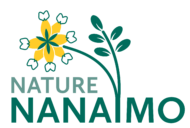with Chris Pearce
Sea cucumbers are soft-bodied, sea-bottom-dwelling marine invertebrates closely related to sea urchins, brittle stars, and sea stars, all of which are echinoderms. Many are benthic deposit feeders, creeping along the ocean floor, grazing on organic material. Others are suspension feeders that capture microscopic algae and organic detritus floating in the ocean. Compared to well-known and tasty marine finfish and shellfish that are presently cultured—including salmon, oysters, mussels, clams, and scallops—sea cucumbers may not seem that impressive, but these unassuming animals have the potential to transform how we farm food in the ocean. This talk will examine the diversity, biology, ecology, and ecosystem services of sea cucumbers.
Christopher Pearce is a Research Scientist with Fisheries and Oceans Canada at the Pacific Biological Station (Nanaimo, British Columbia, Canada), where he conducts studies on sustainable aquaculture, focusing on the effects of various environmental factors on the biology, physiology, and genomics of a variety of cultured freshwater and marine invertebrates (i.e. geoduck clams, giant red sea cucumbers, green/purple/red sea urchins, Manila clams, Pacific oysters, and signal crayfish). He works closely with the commercial shellfish and finfish culture industries and various First Nations in British Columbia to address issues related to the ecological, economical, and social sustainability of invertebrate aquaculture, results from his research having contributed to the development of various federal aquaculture policies and frameworks. He is a specialist on integrated multitrophic aquaculture (IMTA) and lower-trophic-level aquaculture, routinely advising provincial, national, and international companies, organizations, research networks, and governing bodies on various facets of those two fields. He is currently working with the salmon aquaculture industry in western Canada to examine the feasibility of using sea cucumbers to mitigate net biofouling and organic particulate accumulation at commercial fish farms. As of 2022, he had authored/coauthored 120 scientific publications, including 90 peer-reviewed journal articles and 30 governmental/industry technical reports. He holds editorial positions with three scientific journals, maintains adjunct status at two universities (Vancouver Island University and University of Victoria), and is the past-president of the Aquaculture Association of Canada. He is also co-editor of the recently (Oct. 2023) published book “The World of Sea Cucumbers: Challenges, Advances, and Innovations”.
